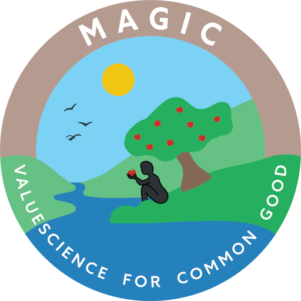Sketch an ecological framework for analyzing the human condition. Include the following factors: population, information, gene, epigene, experience, culture, non-culture, environment, air, water, land, biota, artifact, resource, hazard.
Explain the singular import of culture as a tool for adaptation because of its amenability to rapid change and its potential for rapid, widespread communication. Note that with absence or attenuation of immediate feedback from nature (excluding other humans) we can easily learn others’ mistakes, rather than learn from them.
Describe how culture is communicated, embodied, and evolved. Define and explain the importance of the following: semiotics, language (word, image, expression, posture, gesture), narrative, meta-narrative, advertising, media, news, propaganda, ideology, linguistic relativity, psychology of justification, cognitive activism, paradigm shift, world-view, world model, consensus trance, classical and operant conditioning, cognitive bias, and conscious personal evolution.
